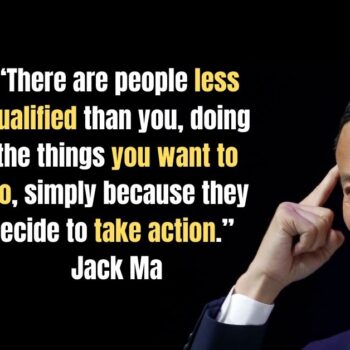Embarking on a new blogging adventure can feel overwhelming. Where do you even begin? What do you need to learn, and who can guide you? Fear not! While numerous blogging strategies exist, the core principles of building a successful blog remain consistent. This comprehensive guide offers 30 indispensable tips for new bloggers, equipping you with the knowledge and confidence to establish a solid foundation for your blog and set yourself up for success.
1. Choose the Right Platform:
WordPress is the go-to platform for most bloggers, offering flexibility, ease of use, and a vast community for support. It empowers you to customize your blog’s design, functionality, and features with thousands of themes and plugins. For a detailed comparison of popular platforms, check out this guide on choosing the best blogging platform.
2. Understand Blogging Legalities:
Protect yourself and your content by obtaining necessary copyrights and permissions for any written, visual, or creative elements used in your blog. Familiarize yourself with basic copyright law, fair use guidelines, and privacy policies to ensure compliance. You can find helpful resources on copyright law at the U.S. Copyright Office website.
3. Conduct Thorough Keyword Research:
SEO (Search Engine Optimization) is vital for attracting organic traffic. Utilize tools like Google Keyword Planner and SEMrush to identify relevant keywords that your target audience is searching for. Incorporate these keywords strategically into your content to improve your search engine rankings.
4. Find Your “Why”
Define your purpose and passion for blogging. A clear “why” will motivate you during challenging times and keep you focused on your goals. What message do you want to convey? What impact do you want to make?
5. Project Confidence in Your Content:
Research and knowledge will underpin your writing. You don’t have to be an expert, but thorough preparation builds credibility with your readers. Share your insights with conviction and back up your claims with evidence.
6. Stay Organized:
Capture ideas, images, and resources in an organized system to streamline your blogging workflow and avoid missing out on valuable content. Use tools like Evernote, Trello, or even a simple notebook to keep track of your thoughts and inspirations.
7. Develop a Content Plan:
Consistency is key for building an audience. Create a content calendar to plan and schedule your blog posts in advance. This will help you maintain a regular publishing schedule and ensure you have a steady stream of content ready to go. If you’re looking for a structured approach, check out our New Blogger Action Plan: A 30-Day Roadmap to Lasting Success.
8. Network with Fellow Bloggers:
Connect with other bloggers in your niche for support, collaboration, and potential guest blogging opportunities. Engage with them on social media, comment on their blogs, and attend industry events to build relationships and expand your network.
9. Leverage Blogging Tools:
Utilize a variety of tools to enhance your content creation, audience reach, and blog growth. Research and choose the ones that best suit your needs. Consider tools for social media scheduling, email marketing, SEO optimization, and image editing.
10. Prioritize Design:
The visual appeal and user experience of your blog matter. Choose a theme that reflects your brand and is easy to navigate. Pay attention to color schemes, fonts, and layout to create a cohesive and visually pleasing design.
11. Actively Promote Your Blog:
Share your content on social media, engage with online communities, and explore other promotional strategies to attract readers. For a comprehensive guide, check out our post on Blogging and Social Media: The Ultimate Guide to Growing Your Blog in 2024. Consider guest posting on other blogs, participating in relevant forums, and utilizing paid advertising if your budget allows.
12. Set Clear Blogging Goals:
Define your long-term vision for your blog. Having clear objectives will guide your decisions and help you measure success. Do you want to build a community, generate income, or establish yourself as an expert?
13. Utilize an Editorial Calendar:
A content calendar streamlines your content creation process. Plan topics, deadlines, and promotional activities in advance. This helps you stay organized and ensures you have a consistent flow of content.
14. Find Your Unique Voice:
Stand out in the crowded blogosphere by developing a distinct writing style and perspective that resonates with your audience. Be authentic, relatable, and inject your personality into your writing. To learn more, check out Find Your Blogging Voice: How to Stand Out as a New Blogger.
15. Leverage Analytics:
Track your blog’s performance with tools like Google Analytics. Understanding your audience and traffic sources helps you make informed decisions. Pay attention to metrics like page views, bounce rate, and time on site to gauge engagement and identify areas for improvement.
16. Solve Problems for Your Readers:
Offer valuable solutions to common challenges faced by your target audience. Position yourself as a helpful resource. Address their pain points, answer their questions, and provide actionable tips and advice.
17. Create High-Quality, Engaging Content:
Focus on creating informative, well-researched, and enjoyable content that keeps your readers coming back for more. Use storytelling techniques, captivating headlines, and clear formatting to make your posts easy to read and share. For some practical tips, explore our post on 11 Simple Tips to Writing Better Blog Posts.
18. Incorporate Visuals:
Images, infographics, and videos can enhance your blog posts, making them more visually appealing and engaging. Visuals break up large blocks of text, illustrate complex concepts, and add personality to your blog.
19. Develop Your Unique Voice:
Infuse your personality into your writing to connect with your readers on a deeper level. Let your passion and enthusiasm shine through.
20. Seek Feedback:
Don’t be afraid to ask for feedback from fellow bloggers or your audience. Constructive criticism can help you improve. Welcome comments and suggestions, and be open to learning from others.
21. Write Enticing Headlines:
A captivating headline is crucial for attracting clicks and readers. Craft headlines that spark curiosity and accurately reflect your content. Use strong verbs, numbers, and questions to pique interest.
22. Engage with Your Community:
Interact with other bloggers and your readers through comments, social media, and other channels. Build relationships and foster a sense of community. Respond to comments, participate in discussions, and show genuine interest in your audience.
23. Share Your Expertise:
Establish yourself as an authority by sharing your knowledge and insights generously. Offer valuable tips, tutorials, and in-depth analyses to demonstrate your expertise and build trust with your readers.
24. Adopt a Long-Term Mindset:
Blogging success takes time and dedication. Avoid burnout by setting realistic expectations and celebrating small wins. Focus on creating quality content and building relationships, and the results will follow.
25. Optimize Your Content for SEO:
Implement SEO best practices to improve your blog’s visibility in search results and attract organic traffic. Research relevant keywords, optimize your titles and meta descriptions, and ensure your website is technically sound.
26. Measure and Analyze Your Progress:
Regularly track your blog’s performance using analytics tools. Use the data to identify areas for improvement and make informed decisions. Monitor your traffic, engagement metrics, and conversion rates to gain insights into your audience and content strategy.
27. Invest in a Professional Theme:
A visually appealing and user-friendly theme enhances your blog’s credibility and user experience. Choose a theme that is mobile-responsive, loads quickly, and aligns with your brand identity.
28. Increase Your Posting Frequency:
Consistent posting helps maintain audience engagement and improve your search engine rankings. Aim for a regular publishing schedule that you can realistically maintain.
29. Diversify Your Content:
Offer a variety of content formats, such as tutorials, case studies, interviews, and opinion pieces, to keep your readers engaged. Experiment with different formats to cater to various learning styles and preferences.
30. Promote Your Blog Strategically:
Utilize social media, guest blogging, email marketing, and other channels to reach a wider audience and attract new readers. Develop a comprehensive promotional strategy that leverages your strengths and targets your ideal audience.
Conclusion:
Remember, blogging is a journey, not a destination. Embrace the learning process, experiment with different strategies, and most importantly, stay true to your passion and purpose. By implementing these tips for new bloggers and consistently delivering valuable content, you’ll be well on your way to building a successful blog that resonates with your audience and achieves your goals. Happy blogging!
Let me know if you’d like any of these sections elaborated further or have any other questions!









No Comments
Leave a comment Cancel